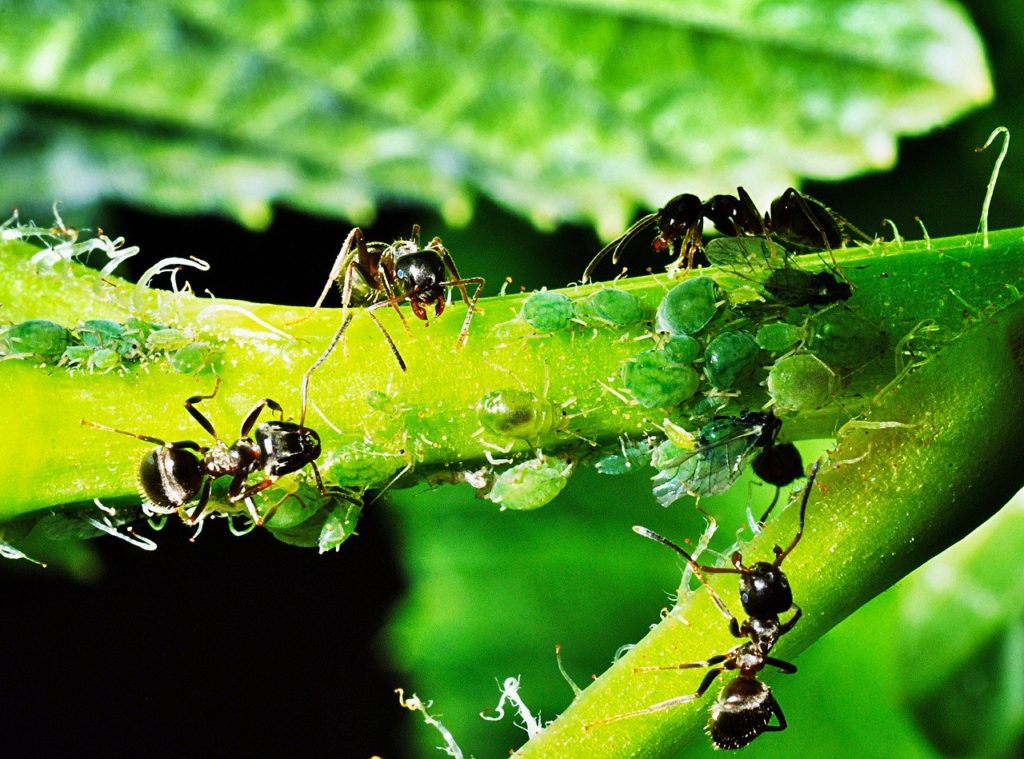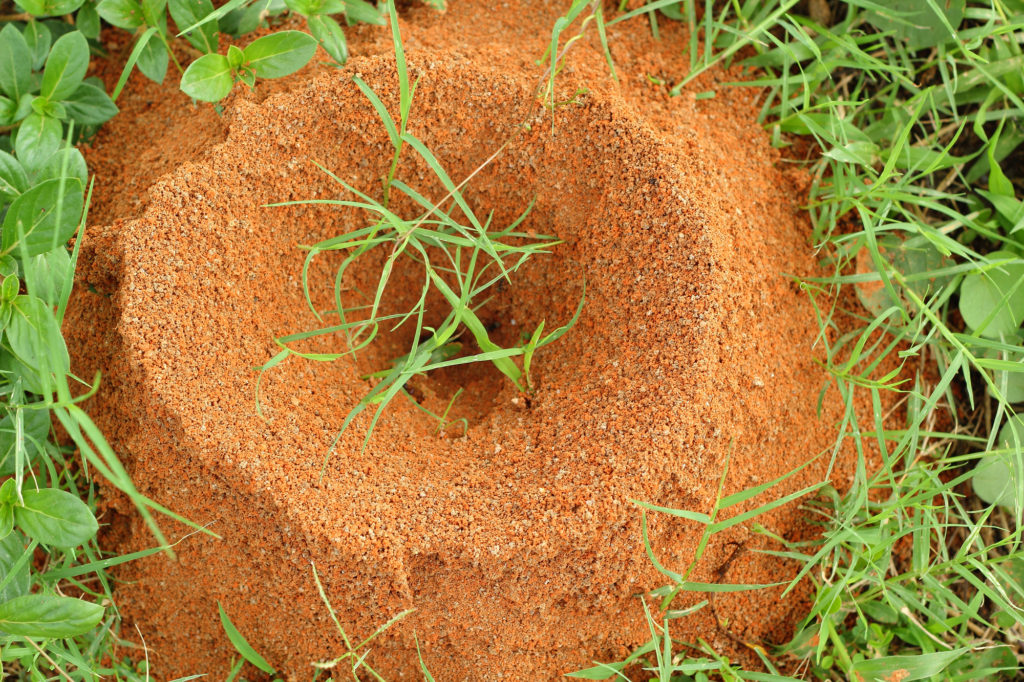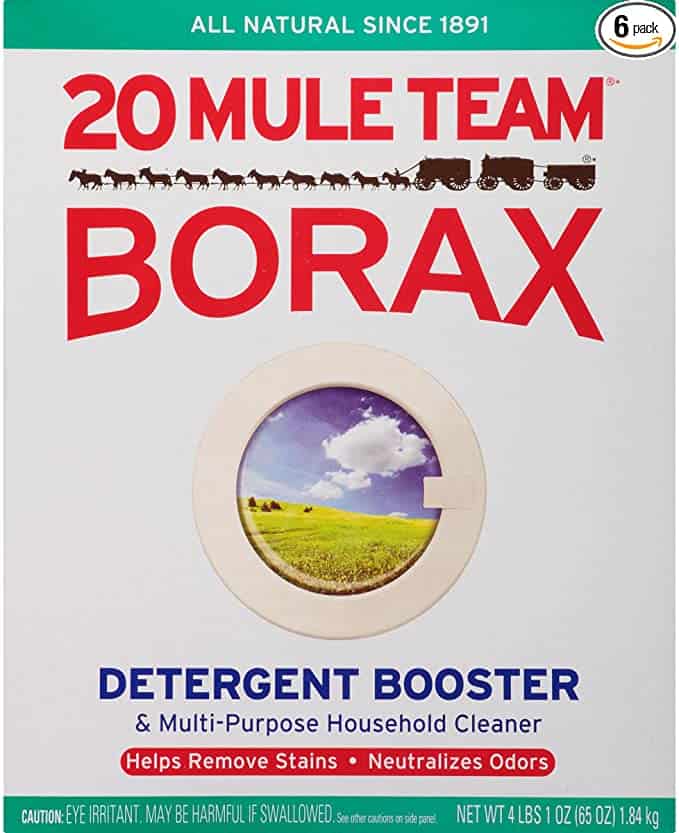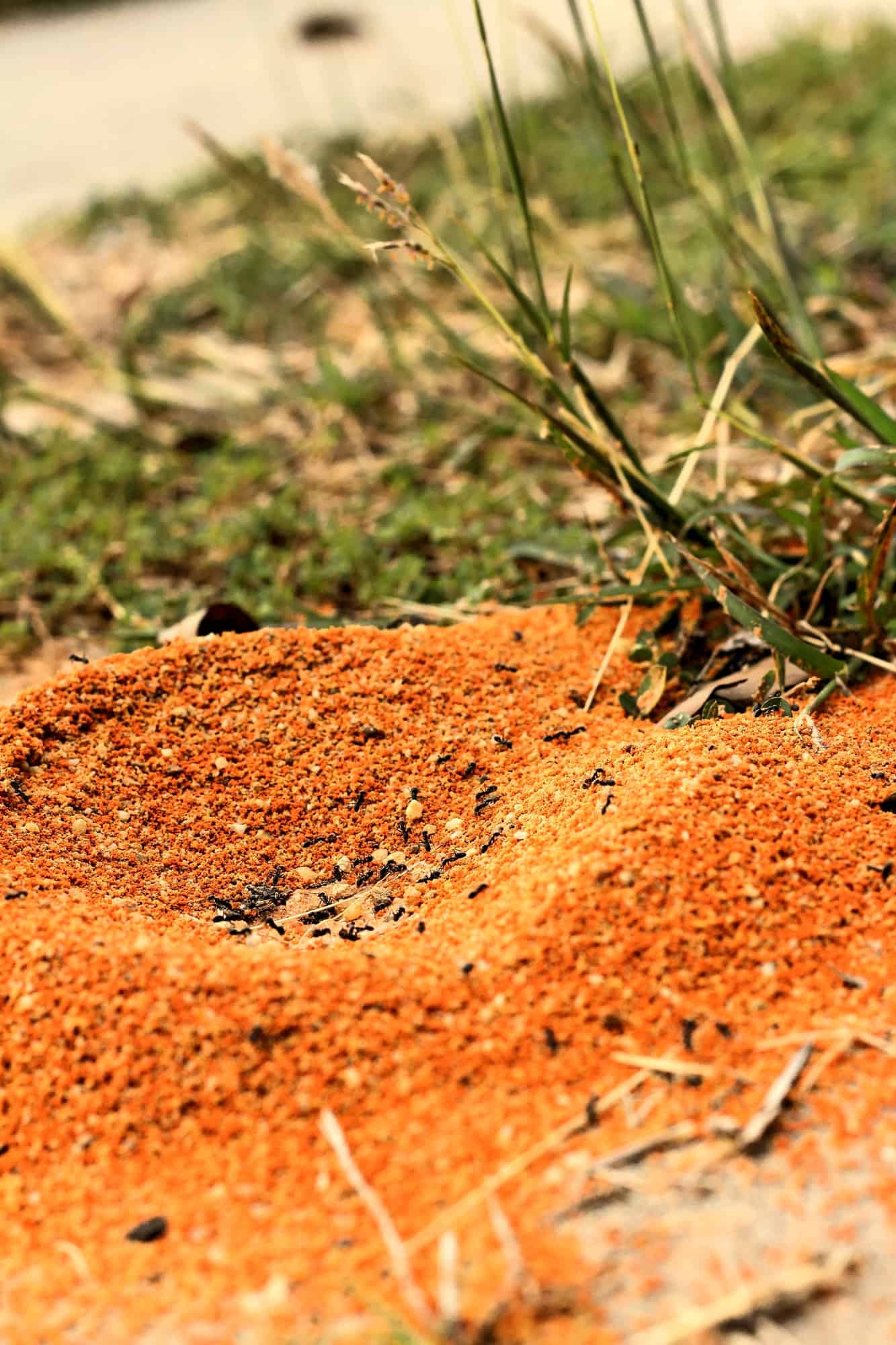Ants. The bane of any gardener’s existence. We get more questions about ants than probably any other single topic that comes in over the transom.
So the question begs: Why are ants such a big deal for gardens?
Ants are a problem for garden plants for a few key reasons. Ants can consume seeds as a food source. They also dig tunnels that aerate the soil, which can stunt plant growth. And ants will consume fungi that help plant root systems and they can draw aphids, which suck nutrients from plants.
In this post, we’re going to share our three go-to all-natural pest control methods for ants. It’s actually not all that hard to get rid of ants in your plants, but many people resort to dangerous chemicals.
We’re here to tell you that isn’t necessary. You don’t need chemicals. And you don’t need to spend a ton of money. Not how we roll here at the Garden Daily.
Why Ants are a Problem for Your Garden: What You Need to Know
Before we get into the methods, let’s clear up the danger ants can pose for your garden.
The bad news is this: Ants can wreak havoc. In fact, ants colonizing your raised beds is one of the worst problems you can have.
Seeds are Food for Ants
The first reason—and it’s a big one—has to do with seed germination. Seeds are rich in protein and fat and ants love to, well, gobble them up. They’ll carry away lettuce seeds, grass seed, even bean seeds.
The problem here is obvious. If you put down fresh seed, the ants will literally walk away with it. They’ll take the seed back and stockpile in their nest.
Ants Over-Aerate the Soil
Another problem is that ants tend to over-aerate your soil. When ants create a colony, they tunnel throughout the soil. These tunnels contain large amounts of air that plants aren’t used to. The roots will grow into those air pockets and then turn or change direction into those tunnels.
This can stunt growth. Moreover, ants will make tunnels around plant roots because they hold onto that soil and thus prevent their colony from collapsing on itself. It gives them a more security and makes that much tougher to get rid of in your garden.
It’s basically like they’re building a house and using your plants to strengthen the foundation. The roots are going to keep the soil in place and keep their ant hill from eroding or collapsing.
Ants Are Aphid Magnets

The third problem that ants pose in the garden are aphids. Aphids are soft-bodied green insects that suck the life out of your plants.
They feed on the undersides of the leaves, sucking all the sugars that the plant is creating through photosynthesis. They excrete what’s called honeydew. Honeydew is a sweet substance and ants will feed on the honeydew.
Ants will literally carry aphids up to the plant so the aphids can start eating away at your plants and excrete that honeydew. It’s a symbiotic relationship and it’s a major problem for your plants.
Ants Will Eat Your Garden’s Good Fungi
One other reason ants are so problematic for your garden is because ants eat fungus. You might be thinking, ‘Well, isn’t that doing me a favor because I don’t want fungus in my garden?’
Yes and no. There is bad fungi and good fungi. The good fungi you definitely want in your garden. You don’t want to kill that off.
Blight, for example, is a fungus and it’s bad for your plants. But the good stuff, the good fungi is known as mycorrhizae. It’s a remarkable symbiotic relationship mycorrhizal fungi form with your plants.
It attaches to plant roots and helps your plants mine minerals, as well as increase the root system, and enhance water resistance and drought tolerance.
Legumes will form them naturally. But if you inoculate your bed or you use a rich, organic matter compost, the fungi will attach to all of your plant roots: onions, zucchini, tomatoes, peppers, etc.
If you don’t deal with the pest problem, however, the ants will begin to feed off that good fungi. In essence, you’ll have allowed the ants to reduce the amount of good fungi in your soil, which means you will have reduced the amount of nutrients in your soil available to your plants.
So those are four reasons why ants are a complete no-go in our garden. So now let’s get to the business of getting rid of them.
Find the Ant Hill, First

The first thing we need to do is locate their home.
Without much effort, you’ll see a trail of ants. Follow that trail to its source and you’ll find an ant hill or two. This is the most essential. You can’t just spread these control methods willy-nilly along the ant trails. You must treat the ant problem at the source—the ant hill.
Thus, the first rule in ridding your garden of ants is this: find the source and you’ll fix the problem.
Once you find the ant hill, we’re ready to get busy solving the problem.
Method 1: Does Flooding the Ants Work?
The first method is the easiest. And to answer the question, YES!
Your hose is your friend when it comes to getting rid of ants in your plants.
now, the issue is that this method is not really effective for in raised beds because of the fact that we have plants here it’s called flooding.
The process is simple. You’ve found the source—the ant hill. So if you flood the source, ants won’t be able colonizing, and so they’ll end up moving. Ants don’t like low-lying areas because that’s where water settles.
Plain old water causes them all sorts of problems, not the least of which is that ants can drown. So they end up leaving to find higher ground. Problem solved with just your handy dandy garden hose.
In life, always start with the easiest solution first.
Method 2: Using Cinnamon as an Antifungal
The second natural ant control method is … cinnamon. Yes, cinnamon. It’s remarkably effective anti-fungal.
If you have ants that are mining fungus, cinnamon is our go-to antifungal. When you sprinkle it around the whole of an ant hill, it will kill any fungus in that area and the ants will lose their food source and they’ll have to move now.
Keep in mind this’ll work only if the ants are currently mining fungus.
A lot of times ants are out scavenging. They’re trying to find dead insects. They’re trying to find honey from your beehives or just a sugar source in general. But if they’re mining fugus, use cinnamon.
Make sure that you don’t have any rain in the forecast because if it gets wet, the cinnamon loses a lot of its potency. So during the hot and dry season, I find this is most effective. But if you do this in springtime, when it rains a lot, the cinnamon is just going to wash away.
All you have to do is take the cinnamon and pour copious amount of it on the ant hill. I mean completely cover the ant hill and the surrounding area, as well.
Pour a thick layer of it and make sure to cover the whole to the ant hill with the cinnamon. That’s it.
Method 3: Will Borax Kill Ants?

The final all-natural ant control method that we use—and it’s definitely the most effective—is borax. If nothing else works is borax and sugar now borax is all-natural.
It’s just boron and sodium, and it’s commonly used as fabric softener. However, it’s very effective at killing ants. However, a lot of times people make they make it too runny. They add too much water.
What you want to do is we made this up in our kitchen. It’s, super simple: all we did was we added one part sugar to one part borax now the reason why you can’t just leave it in it’s. Dried, your annular form is because the ants will just pick out: they won’t readily eat the borax.
They’ll just pick out the sugar and you’ll, just give them a food source. So what you want to do is add just enough water to make it a paste once it is a paste they can actually carry that they can carry that paste back to the anthill and feed the rest, the ants with it.
If you make it too much of a liquid, what can happen is they’ll actually drink the liquid and it ends up killing them too quickly? They don’t even make it back to the anthill in time, and so what we want to do is make it a paste, and it also helps if we apply it right at the source, because that way ants are not carrying it.
A long distance they’re, getting it and they’re, taking it right down and back into the colony, rather than applying it 20 30 feet away. Where we see the ants you see the can. I see those train tracks, those those ant trails.
You can treat those ant trails and it will basically just bring more ants out there and the the caller will keep sending ants out to the sugar source and the answers won’t make it back. So while it’s, effective it’s, not nearly as effective and quick as putting it right at the source where the ants are gonna swarm it because ants are advantageous.
They’ll, take advantage of a food source that’s much closer rather than far away, and so feed them right at the source. This sugar and borax paste and what they’ll do. Is they’ll? Take it carry it down, feed the ants, hopefully feed between, because once you once you feed the Queen, the Queen dies can’t lay any more eggs and the colony is pretty much toast.
So this is a very effective method and it’s natural.
Final Thoughts
So there you go, a super inexpensive way to rid your garden of ants. And these are natural solutions–not chemically based at all. Just remember to stay on top of the ant colony. The sooner you send them on their way–far away from your garden–the easier of a job it’ll be to get rid of them.
Try these methods and best of luck getting rid of the pests in your garden.

